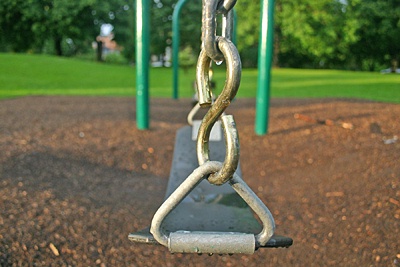All Nonfiction
- Bullying
- Books
- Academic
- Author Interviews
- Celebrity interviews
- College Articles
- College Essays
- Educator of the Year
- Heroes
- Interviews
- Memoir
- Personal Experience
- Sports
- Travel & Culture
All Opinions
- Bullying
- Current Events / Politics
- Discrimination
- Drugs / Alcohol / Smoking
- Entertainment / Celebrities
- Environment
- Love / Relationships
- Movies / Music / TV
- Pop Culture / Trends
- School / College
- Social Issues / Civics
- Spirituality / Religion
- Sports / Hobbies
All Hot Topics
- Bullying
- Community Service
- Environment
- Health
- Letters to the Editor
- Pride & Prejudice
- What Matters
- Back
Summer Guide
- Program Links
- Program Reviews
- Back
College Guide
- College Links
- College Reviews
- College Essays
- College Articles
- Back
This is a Tennis Team MAG
My high school tennis team had always been at least competent. Every season we managed to win some matches, and the ones we lost were close. Each year, I put more time and effort into my game, and in turn, won a few more matches. When my senior season finally arrived, I had managed to reach the top: I was the varsity captain. There was only one problem. By then, I was the only one on the team who had ever played competitive tennis before. Going into the season, I felt like I was captaining a sinking ship.
From the first serve of summer practices, I could tell our team would have a hard time. Omaha is a segregated town, both racially and economically. The suburban and private schools were overflowing with country-club kids who had a major advantage on the tennis circuit. At my inner-city school there was not much interest in tennis, and on our first day of practice, it showed. Arms flailed as balls flew far above and beyond the courts. It was hard to tell whether I was going out for tennis or baseball. I remember thinking as I watched those first practices that even if we worked 12 hours a day, seven days a week, we still wouldn’t be able to compete.
Along with crushing the little hope I had for the season, the practices led to my ego becoming oversized. Since none of my teammates had seen a live tennis match, they thought I was the next Andre Agassi. They assumed I was a prodigy and were certain I would easily win state. They christened me Champ. Of course, this only lasted until our first match when I played the top seed from a suburban school. The kid hit the ball twice as hard as I could and returned my shots with a sadistically bored expression. I remember looking at my teammates, their faces a mix of confusion and horror. The match shattered their perceptions and they never called me Champ again.
As the season continued, my frustrations grew. No matter how hard we worked, the team could not manage a win. In past years, we had always been able to, at the very least, beat the other inner-city schools, but this year, even that seemed out of the question.
I remember going to practice after a particularly bad tournament and expecting to see a group of guys as down and frustrated as I. Instead, the team was laughing and playing as if nothing had happened. Jason was chasing Tim, hitting tennis balls at his head. Robbie was making bets with the JV team that he could hit the house across the street. Mitch ran to tell me how he’d made an amazing shot in the match and was sure that if he could perfect it, he’d have the ultimate secret weapon. We had been annihilated less than 24 hours before, and they acted like nothing had happened.
At first their attitudes baffled me, but after some thought, I realized I had been looking at our performance the wrong way. Some teams are simply not going to win state. It was not fair to measure how well we were doing based on wins and losses, because success is not that black and white. Mitch had lost his match the day before 0-8, but he made one shot which, to him, eclipsed all of his misses. Who is to say that he lost?
For the rest of the season, I played with a different attitude. Learning not to take things too seriously enabled me to relax, have more fun and play better tennis. The team began to bond. Some of my teammates decided we should meet at Taco Bell before each match. I did not tell them it was a terrible idea to eat that kind of food before a competition but went along. I dealt with several bouts of nausea during matches, but this light-hearted attitude kept me coming to practice.
We finished the season 0-10, but instead of being my worst season of tennis, it was the most rewarding. Sure, at a certain level winning is crucial and my new philosophy wouldn’t be acceptable. But that wasn’t my level. Playing on a losing team taught me how to make the best of a bad situation and keep a great attitude. It also made me realize that the old cliché is true: It’s not whether you win or lose, it’s how you play the game.

Similar Articles
JOIN THE DISCUSSION
This article has 0 comments.
